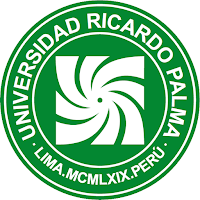The bad omens and luck as constitutive elements of death in Fabla salvaje and the short story «Cera» from Escalas, by César Vallejo
The bad omens and luck as constitutive elements of death in Fabla salvaje and the short story «Cera» from Escalas, by César Vallejo Les mauvais présages et la chance comme éléments constitutifs de la mort dans Fabla salvaje et la nouvelle «Cera» d’Escalas, de César Vallejo
Article Sidebar
Main Article Content
Gustavo Reynaldo Dominguez Chincha
Abstract
This article analyses two texts by César Vallejo: Fabla salvaje and the short story «Cera» by Escalas. In the novel Fabla salvaje, it will be observed how a peak stage is represented: the moment in which the mirror is broken, and from it, the importance of luck and bad omens in the construction of the text will be shown. Likewise, in the story «Cera», we will show an ordered sequence of bad omens that give way to the presence of death. Thus, both the novel and the story have in common the bad omens and the presence of luck as elements that bring with them the possibility of death. In this sense, it is necessary to show the link between these elements, in both texts, and death itself. In other words, the presence of death cannot exist without first having been tacitly or expressly enunciated by different marks in Vallejo’s work.
Article level metrics
Downloads
Metrics
Article Details

This work is licensed under a Creative Commons Attribution 4.0 International License.
La revista utiliza una licencia Creative Commons para mostrar a los lectores y a los usuarios cómo se pueden utilizar los contenidos publicados.
Los contenidos publicados en la revista están bajo una licencia CC-BY 4.0, la cual permite:
- Compartir, copiar y redistribuir el material en cualquier medio o formato.
- Adaptar, remezclar, transformar y construir a partir del material para cualquier propósito, incluso comercialmente.
Bajo los siguientes términos:
- Atribución. Usted debe dar crédito de manera adecuada, brindar un enlace a la licencia, e indicar si se han realizado cambios. Puede hacerlo en cualquier forma razonable, pero no de forma tal que sugiera que usted o su uso tienen el apoyo de la licenciante.
La información de licencia se muestra e incrusta en las páginas de artículos y en ficheros de texto completo como sigue:
«Este obra está bajo una licencia de Creative Commons Reconocimiento 4.0 Internacional».
Costilla, M. (2010). La antropología y el sentido. Tópicos del Seminario, (23), 291-329. https://www.scielo.org.mx/pdf/tods/n23/n23a9.pdf
González Vigil, R. (ed.) (1990). El cuento peruano, 1920-1941. Ediciones Copé.
Monguió, L. (1960). César vallejo. Vida y obra. Editora Perú Nuevo.
Real Academia Española (2014a). Augurio. En Diccionario de la lengua española. Recuperado el 30 de mayo de 2023, de: https://dle.rae.es/augurio?m=form
Real Academia Española (2014b). Suerte. En Diccionario de la lengua española. Recuperado el 30 de mayo de 2023, de: https://dle.rae.es/suerte%20?m=form
Vallejo, C. (2020). Fabla salvaje [edición facsimilar]. Editorial Universitaria.
Vallejo. C. (2021). Escalas [edición facsimilar]. Editorial Universitaria.
Zavaleta, C. E. (1997). El gozo de las letras (ensayos y artículos, 1956-1997). Fondo Editorial de la Pontificia Universidad Católica del Perú.
Zuidema, R. T. (2008). Calendario, presagios y oráculos en el mundo inca. En M. Curatola y M. S. Ziółkowski (eds.), Adivinación y oráculos en el mundo andino antiguo (pp. 205-219). Fondo Editorial de la Pontificia Universidad Católica del Perú.










